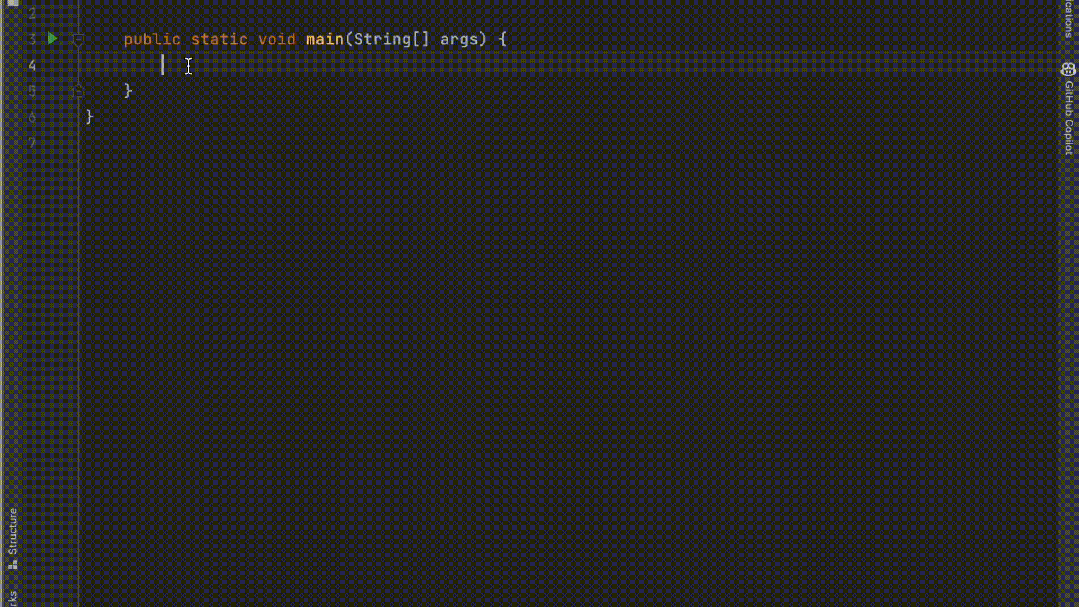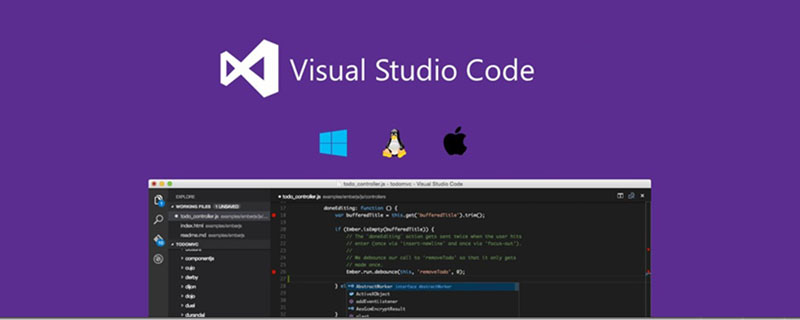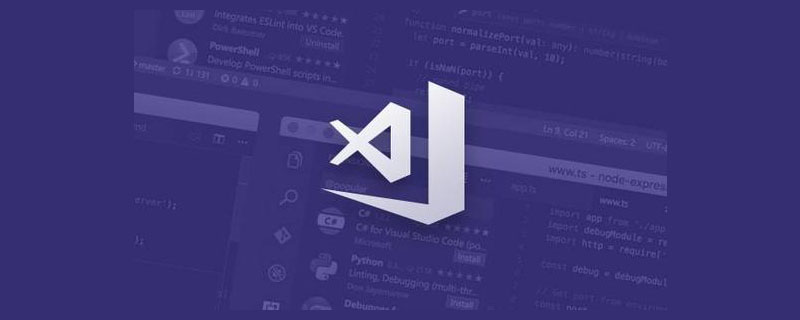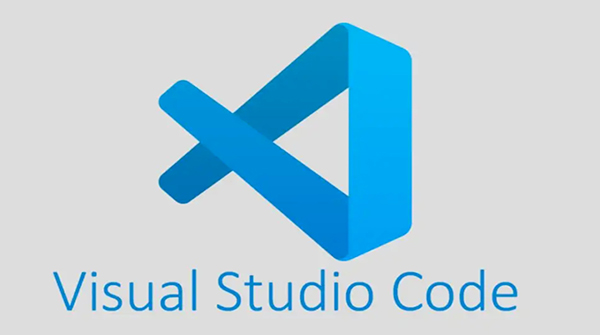Vue-cli is a scaffolding tool officially provided by Vue.js to build Vue projects. By using Vue-cli, you can quickly build the basic skeleton of a Vue project, allowing developers to focus on the implementation of business logic without having to Spend a lot of time configuring the basic environment of the project. This article will introduce the basic usage of Vue-cli and commonly used plug-in recommendations, aiming to provide a guide to the use of Vue-cli for beginners.
1. Basic usage of Vue-cli
- Installing Vue-cli
Before using Vue-cli, you need to ensure that Node is installed locally .js environment and npm package management tool. Then use the following command on the command line to install Vue-cli:
npm install -g @vue/cli
If an old version of Vue-cli has been installed, you need to use the following command to upgrade:
npm update -g @vue/cli
- Create Vue project
After installing Vue-cli, you can use Vue-cli to create a project. Use the following command on the command line to create a new Vue project:
vue create my-project
where, my-project is your project name, which can be modified as needed. Then follow the prompts to select the required preset options, such as using babel, using router, etc. After the installation is complete, you can enter the project directory and start the development server through the following command:
cd my-project npm run serve
- Build the Vue project
After the development is completed, the project needs to be packaged for convenience release. You can use the following command to build the project:
npm run build
This command will generate a dist directory in the project root directory, which includes all static resource files after the build. All files in the dist directory can be uploaded to the server for deployment.
2. Vue-cli plug-in recommendations
In addition to providing basic project building tools, Vue-cli also provides a wealth of plug-in extensions. The following are some commonly used Vue-cli plug-in recommendations:
- vue-router
vue-router is a routing plug-in officially provided by Vue.js, which can easily build a single page app. When creating a new project using Vue-cli, you can choose to add the vue-router plugin.
- vuex
vuex is a state management plug-in officially provided by Vue.js, which is used to manage the global application state. When creating a new project using Vue-cli, you can choose to add the vuex plugin.
- sass
Sass is a CSS preprocessor that provides more CSS extension functions. When creating a new project with Vue-cli, you have the option to add a sass plugin.
- axios
axios is a Promise-based HTTP client that can be used in browsers and Node.js. In a Vue.js application, you can use axios to send HTTP requests. When creating a new project with Vue-cli, you have the option to add the axios plugin.
- babel
babel is a tool used to convert ES6 code to a backward-compatible version, which allows developers to Develop using the latest JavaScript features. When creating a new project with Vue-cli, you can choose to add the babel plugin.
- eslint
eslint is a static code analysis tool used to find possible problems while coding. When creating a new project with Vue-cli, you have the option to add the eslint plugin. You can adjust configurations such as rules and error prompts according to your own needs.
- vuetify
vuetify is a Vue.js component library based on Material Design, providing a rich set of UI components out of the box. You can use the Vue-cli command to add the vuetify plug-in:
vue add vuetify
The above are some commonly used Vue-cli plug-in recommendations. Of course, you can also introduce corresponding plug-ins according to your own project needs.
Summary
Vue-cli is a scaffolding tool officially provided by Vue.js to quickly build Vue projects, which can greatly improve development efficiency and reduce project development difficulty. When using Vue-cli to build projects, you should be familiar with its basic commands and common plug-ins in order to build high-quality, highly maintainable Vue applications.
The above is the detailed content of The use of Vue-cli scaffolding and its plug-in recommendations. For more information, please follow other related articles on the PHP Chinese website!
 五个IntelliJ IDEA插件,高效编写代码Jul 16, 2023 am 08:03 AM
五个IntelliJ IDEA插件,高效编写代码Jul 16, 2023 am 08:03 AM人工智能AI是当前广受认可的未来趋势和发展方向。虽然有些人担心AI可能会取代所有的工作,但实际上只会取代那些重复性高、产出低的工作。因此,我们应该学会更加聪明地工作,而不是使劲努力地工作。本文介绍5个由AI驱动的Intellij插件,这些插件可以帮助你提高生产力,减少繁琐的重复性工作,让你的工作更加高效、便捷。1GithubCopilotGithubCopilot是由OpenAI和GitHub联合开发的一款人工智能代码辅助工具。它使用了OpenAI的GPT模型来分析代码上下文,预测并生成新的代码
 atom中 40+ 个常用插件推荐分享(附插件安装方法)Dec 20, 2021 pm 04:14 PM
atom中 40+ 个常用插件推荐分享(附插件安装方法)Dec 20, 2021 pm 04:14 PM本篇文章给大家分享40+ 个atom常用插件,并附上在atom中安装插件的方法,希望对大家有所帮助!
 vscode插件分享: 6个Vue3开发必备插件Dec 09, 2022 pm 08:36 PM
vscode插件分享: 6个Vue3开发必备插件Dec 09, 2022 pm 08:36 PM本篇文章给大家整理分享 6 个 Vue3 开发必备的 VSCode 插件,可以直接用过 VSCode 的插件中心直接安装使用,希望对大家有所帮助!
 2023年最新最全的VScode插件推荐Jan 24, 2023 am 05:30 AM
2023年最新最全的VScode插件推荐Jan 24, 2023 am 05:30 AM这篇文章主要介绍了这么多年来我在使用 VSCode 过程中用到的一些不错的插件。这些VSCode插件,帮你打造地表最强IDE!
 用 VSCode 写 Python,这14个插件不容错过!May 24, 2023 pm 05:19 PM
用 VSCode 写 Python,这14个插件不容错过!May 24, 2023 pm 05:19 PM可以说,VisualStudioCode这个编辑器,让微软在开源社区赢回了王者段位,要知道全球2400万开发者中有1400万称VSCode为自己的家,再加上GitHub和VSCode的结合,几乎所有的程序员的都离不开VSCode,不过,VSCode如此优秀,值得每个程序员使用,甚至我觉得非程序员都可以用它来码字。如果你还没用过VSCode,那访问这里安装[1]一个吧,很可能就打开了一个新世界。今天分享14个非常实用VSCode插件,可以让你写代码如同神一般,尤其是
 【吐血总结】23个VSCode 插件,助你提高开发效率和美观性Mar 10, 2022 pm 08:01 PM
【吐血总结】23个VSCode 插件,助你提高开发效率和美观性Mar 10, 2022 pm 08:01 PM本篇文章给大家总结了23个各种功能的VSCode 插件,可以帮助开发者提高开发效率和美观性,希望对大家有所帮助!
 canvas插件有哪些Aug 17, 2023 pm 05:00 PM
canvas插件有哪些Aug 17, 2023 pm 05:00 PMcanvas插件有Fabric.js、EaselJS、Konva.js、Three.js、Paper.js、Chart.js和Phaser。详细介绍:1、Fabric.js 是一个基于Canvas的开源 JavaScript 库,它提供了一些强大的功能;2、EaselJS是CreateJS库中的一个模块,它提供了一套简化了Canvas编程的API;3、Konva.js等等。
 如虎添翼,六个让你效率翻倍的ChatGPT插件May 17, 2023 pm 02:28 PM
如虎添翼,六个让你效率翻倍的ChatGPT插件May 17, 2023 pm 02:28 PMChatGPT是一个超强的AI应用程序,OpenAI已经发布的GPT-4引起了更广泛的关注。ChatGPT是由OpenAI开发的专门从事对话的AI聊天机器人,其主要目标是使AI系统更自然地进行互动。大家可能都已经尝试过ChatGPT,今天讲一讲与这个全新工具互动的不同方法。本文总结了6个可以使ChatGPT成为日常助手(甚至超越日常助手)的工具!1.【GoogleChromeExtension】在任何地方使用ChatGPT想在任何地方轻松地使用ChatGPT吗?那么你可以使用Chrome插件(h


Hot AI Tools

Undresser.AI Undress
AI-powered app for creating realistic nude photos

AI Clothes Remover
Online AI tool for removing clothes from photos.

Undress AI Tool
Undress images for free

Clothoff.io
AI clothes remover

AI Hentai Generator
Generate AI Hentai for free.

Hot Article

Hot Tools

Dreamweaver Mac version
Visual web development tools

SublimeText3 Chinese version
Chinese version, very easy to use

SAP NetWeaver Server Adapter for Eclipse
Integrate Eclipse with SAP NetWeaver application server.

Safe Exam Browser
Safe Exam Browser is a secure browser environment for taking online exams securely. This software turns any computer into a secure workstation. It controls access to any utility and prevents students from using unauthorized resources.

VSCode Windows 64-bit Download
A free and powerful IDE editor launched by Microsoft






